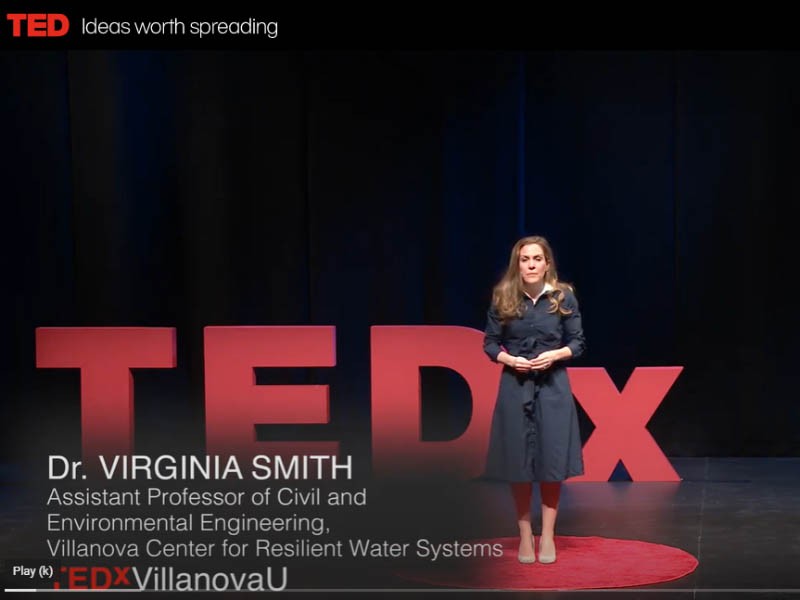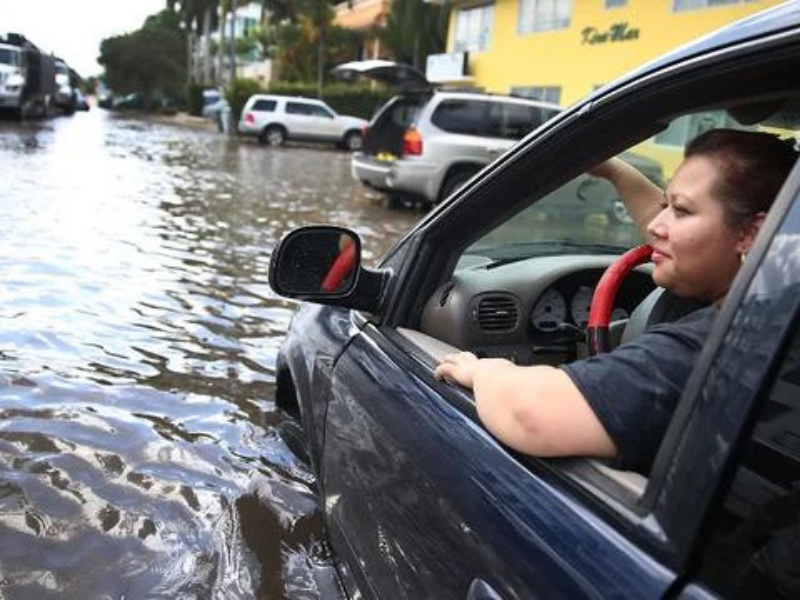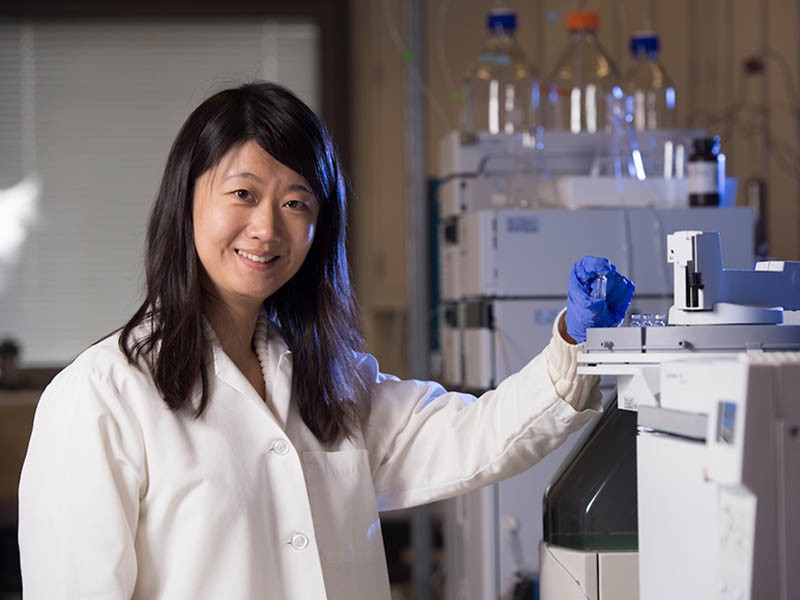CIVIL AND ENVIRONMENTAL ENGINEERING RESEARCH AND FACILITIES
In the Department of Civil and Environmental Engineering, exciting opportunities exist for students and faculty at all levels to address some of the Earth's greatest challenges. We consider it our mission as engineers to serve the common good, encompassing humanity and the natural world.
Over a five-year period, Civil and Environmental Engineering faculty authored or co-authored nearly 170 publications in 47 different scholarly journals. They have been part of 55 different externally-sponsored research projects with more than $5M in research expenditures.
AREAS OF FOCUS
Work focuses on applying environmental interfacial chemistry to the remediation of contaminants in natural and engineered systems, public health microbiology and biological processes for waste management, and issues of sustainability.
Affiliated Faculty: Dr. Metin Duran, Dr. Wenqing Xu
Investigates the response of geomaterials and soil liquefaction during natural disasters; designs and evaluates barrier systems for protection of human health and the environment; and examines flow and transport through unsaturated soils.
Affiliated Faculty: Dr. Jonathan Hubler, Dr. Kristin Sample-Lord
Through the College’s full-scale Richard K. Faris ’69 CE, ’70 MSCE Structural Engineering Teaching and Research Laboratory, faculty are engaged in the development and testing of concrete structures, wood frame panel systems, castellated and cellular beams, joists, structural steel and wood trusses.
Affiliated Faculty: Dr. David Dinehart, Dr. Shawn Gross, Dr. Eric Musselman, Dr. Joseph Yost
Studies center on traffic operation and control, transportation system design, traffic safety, pavement design and construction and intelligent and sustainable transportation systems.
Affiliated Faculty: Dr. Seri Park
Research focuses on stormwater control measures, urban stormwater management, green infrastructure, river dynamics and environmental fluid systems.
Affiliated Faculty: Dr. Virginia Smith, Dr. Robert Traver, Dr. Bridget Wadzuk
CENTERS AND LABS
CENTER OF EXCELLENCE
Villanova’s Center for Resilient Water Systems is creating engineered solutions for global water challenges, including climate change, population growth, aging infrastructure and more. It is home to the nationally-recognized Villanova Urban Stormwater Partnership.
FACULTY LABS
- Environmental Microbiology and Biotechnology Laboratory
- Geotechnical and Geoenvironmental Engineering
- Urban Rivers Group
TEACHING AND RESEARCH LABS
- Richard K. Faris ’69 CE, ’70 MSCE Structural Engineering Teaching and Research Laboratory
- Advanced Simulation and GIS Laboratory
- Geology and Measurements Laboratory
- Fluid Mechanics Laboratory
- Soils Testing Laboratory
- Environmental Laboratories
RESEARCH REPORT
Shifting the Flood Paradigm | TED.com
Dr. Virginia’s Smith TEDxVillanovaU talk is being showcased on TED.com. It is the first Villanova talk to be promoted on this international stage. Her captivating talk presents why water resource planning is fundamental for a more sustainable world, how her cutting edge research is addressing growing global flood crises, and what you can do to help shift the flood paradigm.
In light of sobering IPCC report, how can we address increasing flood risks? | August 19, 2021
In this op-ed, Dr. Robert Traver, director of the Villanova Center for Resilient Water Systems, responds to the recently released Intergovernmental Panel on Climate Change (IPCC) report, which confirms that the increasing volume of rainfall and frequency of extreme events in the past decade is indeed caused by the change in climate. He speaks to how these extreme climate changes, as predicted by the IPCC, affect our current water management infrastructure, and what do we need to do.
Professor Awarded NIH Grant for Improved Bioremediation Research
Dr. Wenqing Xu, associate professor of Civil and Environmental Engineering, has been awarded $657,137 as part of a $1.467 million National Institutes of Health grant (R01) for a five-year collaborative project between Villanova University and the University of Iowa. The work centers on the bioremediation of legacy pollutants and emerging contaminants through the use of pyrogenic carbonaceous matter to enhance the performance of organohalide-respiring bacteria



